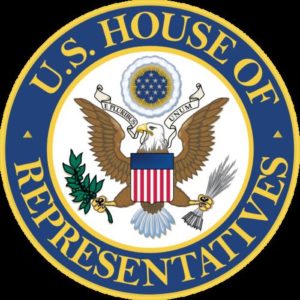By Jim Ellis
Oct. 6, 2020 — With the presidential race in a state of flux because of President Trump’s COVID diagnosis, it’s a good time to adjust House ratings in races where we see movement.
In our prognostications, we move one of our 21 previous toss-up races from that category and into Lean Democratic group.In California’s 48th District, freshman Rep. Harley Rouda (D-Laguna Beach) defends what was formerly a safe Republican seat. Orange County Supervisor Michelle Steel is the Republican general election qualifier and viewed as a strong contender.
Relentless media attack ads against her wealthy husband’s business dealings in China has put her on the defensive, however, which is never a good position for a challenger. At least for the time being, with now less than a month to go until Election Day, this race looks to be trending toward the Lean Democratic column.
We see more action in the “lean” sectors. Three Lean Democratic rated races are moving into the Toss-up grouping, while eight Lean Republican contests are likewise transferring to the most competitive category.
• FL-27: A Republican move in general has been detected in South Florida, which makes the re-match between freshman representative and former Health & Human Services Secretary Donna Shalala (D-Miami) and Spanish language news broadcaster Maria Elvira Salazar (R) more competitive.
In 2018, Shalala was elected with a 52-46 percent victory margin. The only published poll for this race was released at the beginning of September from the 1892 research organization (Oct. 2-6; 400 likely FL-27 voters, live interview) and it gave Salazar a surprising 48-45 percent advantage, and Democrats have not promoted any countering data.
• IA-1: A new survey from Basswood Research for the Congressional Leadership Fund (Sept. 26-28; 400 likely IA-1 voters) finds Iowa freshman Rep. Abby Finkenauer (D-Dubuque) and former television news anchor and state Rep. Ashley Hinson (R-Cedar Rapids) now locked in a dead heat at 45 percent apiece.
The result is a considerable improvement for Hinson who had been trailing prior to this poll, but the latest numbers are reflective of the competitive nature of this eastern Iowa district that has flipped back and forth between Democratic and Republican representation during the decade.
• PA-17: According to reports from the district and the latest released public poll (OnMessage; Sept. 2-3; 400 likely PA-17 voters), Pennsylvania challenger Sean Parnell (R) has seized the momentum against Rep. Conor Lamb (D-Pittsburg). The OnMessage results find Parnell pulling to within one point (45-44 percent) of Rep. Lamb who, in 2018, won a 56-44 percent victory over then-Rep. Keith Rothfus (R). This is certainly a race to watch in a district where President Trump scored a two-point victory in 2016.
Most of the action moving into the toss-up category occurs for Democratic candidates. Below we see eight races moving from Lean Republican to Toss-up.
• AZ-6: Arizona Rep. David Schweikert (R-Fountain Hills/Scottsdale) agreeing that he committed eleven ethics and campaign finance violations has certainly put him on the defensive, particularly since his win percentage dropped to 55-45% in 2018. He had averaged 62.7% of the vote in his three previous re-election campaigns.
We have seen four public polls released here since August began, and both Rep. Schweikert and challenger Hiral Tipirneni (D), a physician who had previously run in the adjoining 8th District, were each leading in two of the four surveys. The margin between the two candidates fell between two and four points. Rep. Schweikert is clearly in trouble here, giving the Democrats a strong opportunity to convert this Republican seat.
• CA-25: California Rep. Mike Garcia (R-Santa Clarita) won a surprisingly large 10-point victory in the May 12 special election. The latest poll, however, finds Assemblywoman Christy Smith (D-Newhall) climbing back into the lead, again making this a toss-up campaign. The most recent survey comes from the Democratic firm, Normington Petts (Sept. 21-23; 400 likely CA-25 voters) and pushes Smith to a 51-45 percent advantage when leaners to each candidate are included. In late August, another Democratic pollster, the Global Strategy Group (Aug. 26-30; 400 likely CA-25 voters), gave Garcia a one-point, 46-45 percent, edge.





